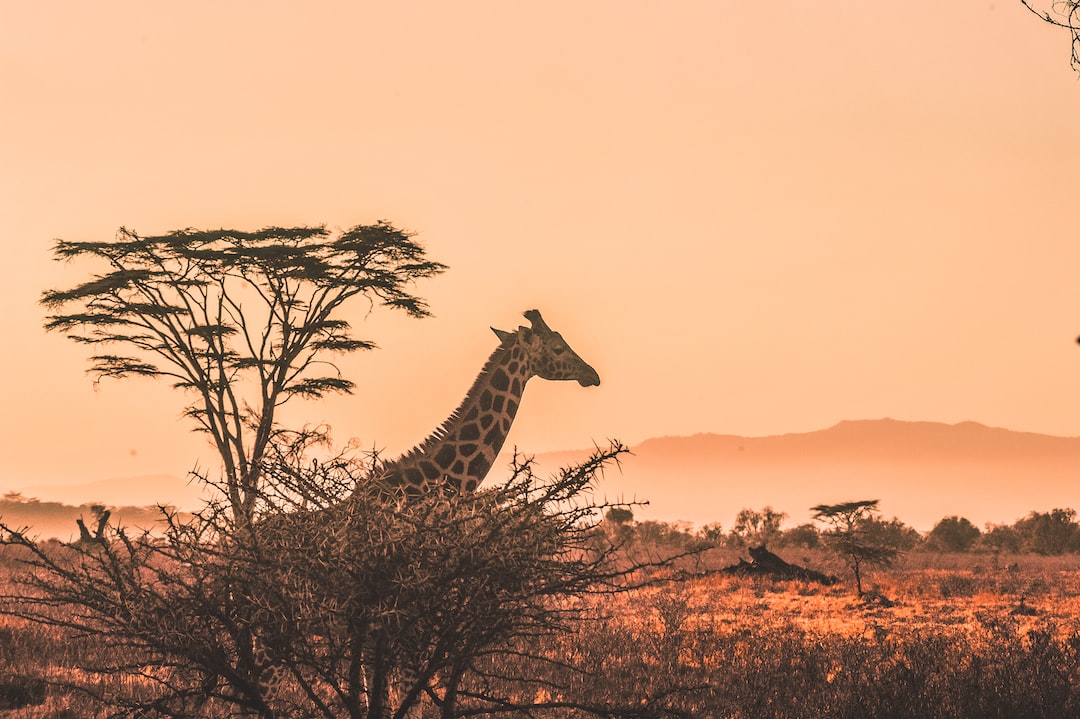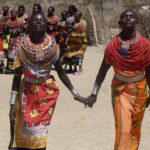Are you looking to plan a wedding that is steeped in culture and tradition?
Then look no further than Kenyan wedding traditions.
Whether it’s traditional attire, ceremony customs, or reception rituals, there are plenty of unique elements to explore when planning the perfect celebration.
From post-wedding celebrations to all the little details between ‘I do’ and happily ever after, learn more about how you can bring Kenya into your special day with these Kenyan wedding traditions.
Kenyan Wedding Traditions
Traditional Attire
When it comes to traditional attire for a Kenyan wedding, the bride is expected to wear a colorful kanga or kitenge dress with a head wrap and jewelry.
The fabric of the dress should be vibrant and eye-catching, often featuring intricate patterns and designs that represent different meanings. For example, some brides may choose fabrics with geometric shapes which symbolize fertility or prosperity.
The head wrap can also be made from these same fabrics and other materials such as lace or tulle. Jewelry is an important part of completing the look, usually consisting of earrings, necklaces, bracelets, anklets, and rings.
For grooms at Kenyan weddings, they are typically dressed in kanzu or suits accompanied by a kofia hat. Kanzu are long white tunics worn over trousers, while kofia hats come in various colors and styles depending on regionality, but all feature short cylindrical crowns with flat brims.
Suits are also popular among grooms who want something more modern yet still appropriate for the occasion, usually including matching pants and jackets along with ties or bowties for added flair.
Guests attending Kenyan weddings must also adhere to traditional attire guidelines; men wear shirts paired with trousers, while women opt for dresses that reach below their knees accompanied by shawls if necessary due to religious beliefs or cultural practices.
Colorful fabrics like those seen on bridal outfits are encouraged but not required since guests don’t have to stand out much compared to the couple.
The traditional attire for a Kenyan wedding is a beautiful sight to behold, from the bride’s colorful and ornate garments to the groom’s regal robes.
As we move into the ceremony traditions, it is important to remember that these practices have been passed down through generations.
Ceremony Traditions
1. Procession and Entrance
In a traditional Kenyan wedding, the bride and groom are escorted to the ceremony by their families.
The procession is often accompanied by singing, dancing, and drums. Upon arrival at the ceremony site, both sides of the family will greet each other with hugs and handshakes before they enter together.
Once inside, the couple will be seated in front of their guests while everyone else takes their seats.
2. Exchange of Vows and Rings
During this part of the ceremony, vows are exchanged between the bride and groom, as well as rings if desired.
This is usually done in front of witnesses from both sides of the family, who sign off on it afterward.
After exchanging vows, there may also be a unity candle or sand-pouring ritual that symbolizes two becoming one.
3. Unity Ceremonies
There are several different unity ceremonies that can take place during a Kenyan wedding, depending on which traditions you choose to include.
One popular tradition is jumping over a broom, which represents sweeping away bad luck, or tying cloths together, which symbolizes binding two people into one union for life.
Other ceremonies, such as feeding each other honey or wine, signify sweetness in marriage, while washing each other’s feet shows humility towards one another throughout your relationship journey ahead.
Ceremony traditions are an important part of a Kenyan wedding, helping to bring together the couple and their families in celebration.
Now let’s take a look at some reception traditions that will make the day even more special.
Reception Traditions
4. Food and Drinks
Traditional Kenyan receptions feature a variety of dishes, including ugali (maize meal) and nyama choma (grilled meat).
There are also plenty of drinks to choose from, such as the popular Tusker beer or traditional African teas. For those who prefer something sweeter, there is always fruit juice or soda.
5. Music and Dancing
Music is an important part of any reception in Kenya. Live bands often play traditional songs like benga or taarab music while guests dance the night away.
It’s not uncommon for people to take turns singing along with the band too. This creates a fun atmosphere that everyone can enjoy.
Gifts are exchanged between the newlyweds and their guests at a Kenyan wedding reception.
These gifts can range from small items like jewelry to larger items such as furniture or appliances.
Guests may also give favors such as flowers, candy, or other trinkets as tokens of appreciation for being invited to share in this special day.
Reception traditions in a Kenyan wedding are often filled with joy and laughter as family and friends come together to celebrate the union of two people.
From delicious food and drinks to music and dancing, it’s an occasion that will be remembered for years to come.
Now let’s take a look at some post-wedding traditions.
Post-Wedding Traditions
6. Honeymoon Celebrations
After the wedding, family members gather to wish the newly married couple well on their journey together.
This is usually done in a festive atmosphere with food and drinks shared among all. The celebration may also include traditional music or dances that are specific to the culture of the couple’s families.
It is an opportunity for both sides of the family to come together and show their support for this new union.
7. Blessing of the Marriage
An important post-wedding tradition is having elders from both families bless the marriage.
This can be done through prayer, song, or even just words of encouragement spoken over them as they embark on this new life together.
It is a way for them to receive wisdom and guidance from those who have gone before them, and it serves as a reminder that they are not alone in this journey ahead but rather part of something much bigger than themselves.
Finally, after all festivities have concluded, there comes one last tradition – returning to the bride’s home for her final farewell before she moves in with her husband’s family permanently.
This moment marks an emotional transition between two worlds – leaving behind her childhood home and entering into adulthood by joining another household altogether.
Though bittersweet, it symbolizes a woman’s strength and courage as she takes these steps toward independence while still being surrounded by love from both sides of her family during such an important time in her life.
Conclusion
The beauty of Kenyan wedding traditions is that they are so unique and special. Whether you choose to incorporate all the traditional elements or just a few, your wedding will be filled with meaningful moments and memories that will last a lifetime.
From traditional attire to post-wedding celebrations, these customs can help make your day even more special and memorable for everyone involved.
No matter what you decide to do on your big day, celebrating Kenyan wedding traditions is sure to bring joy and happiness into the lives of those who attend.




